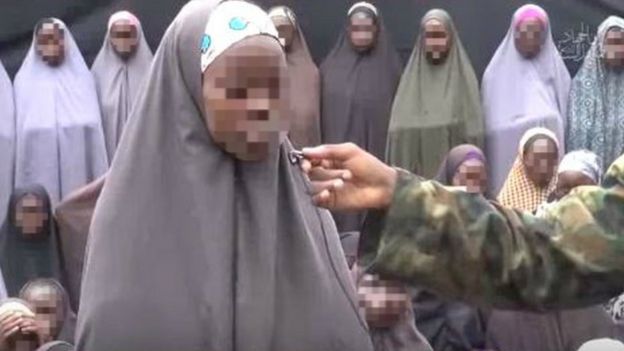
This article is more than
9 year oldAn army spokesman told the BBC's Hausa service that Abubakar Shekau's shoulder was badly injured in the strike on Friday in north-eastern Borno state.
There has been no independent confirmation of the strike.
Claims by the army that it has killed Shekau have turned out to be false on at least five previous occasions.
The reports should therefore be treated with caution, says the BBC's Africa Security correspondent Tomi Oladipo.
Boko Haram is fighting to overthrow Nigeria's government and establish an Islamic State in the north.
An army spokesman said warplanes struck as the militants met for Friday prayers last week at a village deep within the Sambisa forest in Borno State.
The army's announcement coincided with the arrival of US Secretary of State John Kerry in Nigeria on a two-day visit.
Speaking in the northern city of Sokoto, Mr Kerry urged Nigeria to address the root causes of the Boko Haram insurgency.
"Building public trust in government also requires cooperation from the military and law enforcement. Extremism can't be defeated through repression or fear," Reuters news agency quotes him as saying.

The Sambisa forest, which covers a vast area, is thought to be one of the places where the more than 200 abducted Chibok schoolgirls are being held by the group.
A split in Boko Haram emerged earlier this month, when the Islamic State group, to which Shekau had pledged allegiance in 2015, said he had been replaced as leader by Abu Musab al-Barnawi.
Al-Barnawi is reported to be the son of the group's founding leader, Mohammed Yusuf, who was killed in police custody in 2009.
In the last 18 months Boko Haram has lost most of the territory it had controlled after being pushed back in an offensive by the forces of Nigeria and its neighbours.